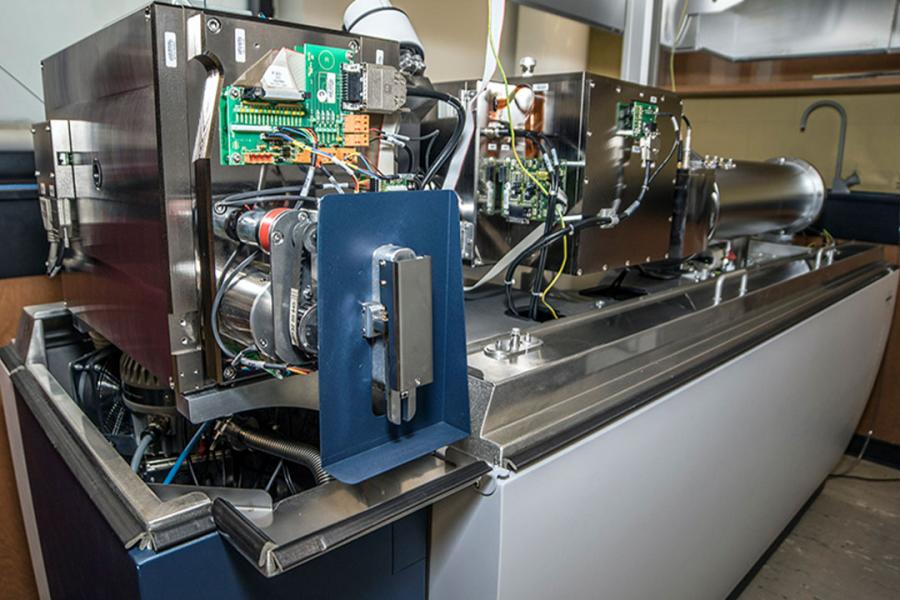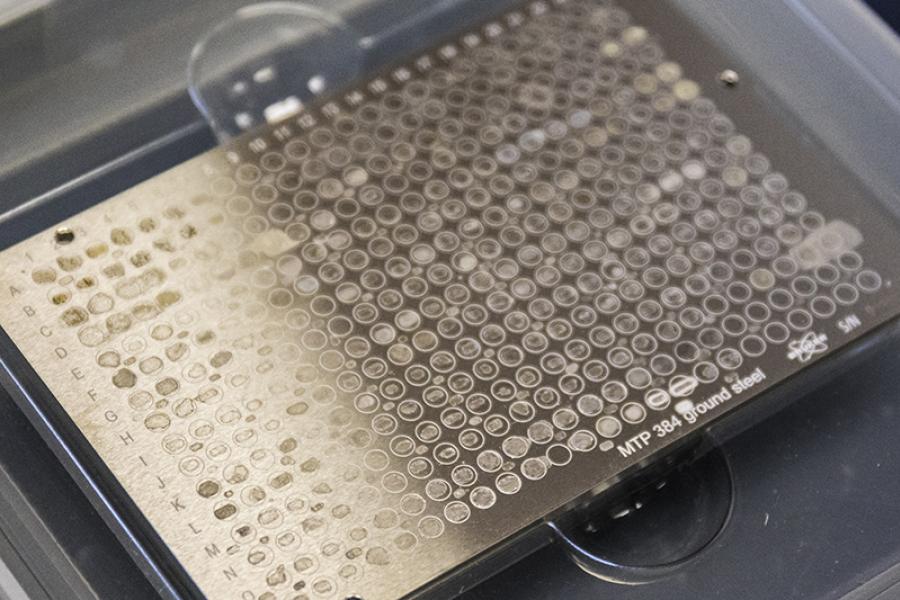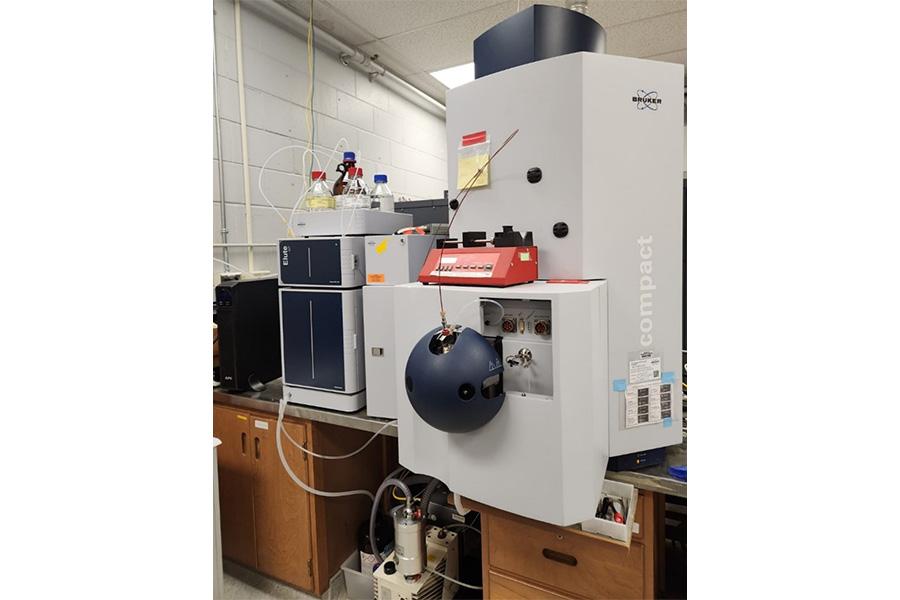Emy Komatsu
MALDI Mass Spectrometry Facility Technician
Emy.Komatsu@umanitoba.ca
204-474-6248
Department of Chemistry
315 Parker Building, 144 Dysart Road
University of Manitoba (Fort Gary Campus)
Winnipeg, MB R3T 2N2 Canada
Mass Spectrometry Facility at the Department of Chemistry
The Mass Spectrometry Facility at the Department of Chemistry, located in Room 318 and Room 325, on Parker Building’s 3rd floor, provides services to academic researchers, the teaching community and local industry.
About the Mass Spectrometry Facility
The Mass Spectrometry Facility is equipped with two analytical techniques, using a Time-of-Flight (TOF) analyzer and Mass Spectrometer detection.
Both techniques provide sample characterization and screening applications of both target and non-target compounds, used in complex matrices.
Additionally, our instruments offer CID (collision-induced dissociation) fragmentation combined with tandem mass spectrometry MS/MS (mass spectrometry followed by mass spectrometry again). A valuable tool for the identification of species with the same parent ion mass, which shows different fragments.
UltraflExtreme - MALDI (Matrix-Assisted Laser Desorption/Ionization) -TOF
The combination of MALDI source, CID fragmentation and the TOF mass analyzer improves the mass spectrometer detection, providing highly specific chemical information on structural analysis and composition.
MALDI, as a static source (sample is loaded and ionized inside the source chamber), is used for characterizing large biopolymers (proteins, glycoproteins, polymers), where its soft ionization allows the identification of the molecule without fragmentation.
MALDI-TOF-MS-MS details:
- Location: 325 Parker Building
- Matrix Assisted Laser Desorption/Ionization (MALDI source)
- Linear TOF: mass ranges 20-5000 m/z
- Mass accuracy: 1.5 ppm
- Mass Resolution: 40,000
- Software: Compass 1.4 for flexSeries (FlexControl 3.4, FlexAnalysis 3.4)
ELUTE COMPACT ESI QTOF-MSMS (Quadrupole Time-of-Flight Mass Spectrometer System)
Our facility uses a UHPLC (ultra-high performance liquid chromatography), (ELUTE, Bruker Daltonics), for sample introduction to ESI Q-TOF-MS/MS (COMPACT, Bruker Daltonics).
The configuration of a UHPLC-ESI, as a source, the addition of a quadrupole to the TOF mass analyzer, combined with CID fragmentation, enhances resolution, delivering mass detection of high accuracy, sensitivity and certainty on analysis.
This technique is very useful to determine both small and high molecular structures of inorganic, organometallic compounds, and proteins. In addition, it can perform both qualitative (unknown) and quantitative (target) analyses, helping to interpret samples of diverse matrices (environment, food, pharmaceuticals, forensic).
- Location: 318 Parker Building.
- ELUTE: UHPLC system (binary pump, auto sampler, column heater)
- Apollo II ESI source (Electron Spray Ionization)
- Orthogonal TOF: mass ranges 20-40,000 m/z
- Internal calibration (MS and MS/MS), mass accuracy equal to or less than 1ppm
- External calibration (MS and MS/MS), mass accuracy equal to or less than 2ppm
- Resolution: 30,000
- Fragmentation: CID
- Positive and negative ion operation
- Software: Compass 3.0 for otofSeries (otofControl 5.2, Hystar 5.1, DataAnalysis 5.2 with Maximum Entropy Deconvolution, QuantAnalysis 5.2)
Contact the facility technician for more information regarding sample preparation, techniques, capabilities and price analysis.
Sample form
Samples submitted to the facility must have a completed accompanying sample form. You can download the Department of Chemistry NMR request form below.
This content is available in alternate formats upon request to sci.accessibility@umanitoba.ca.




